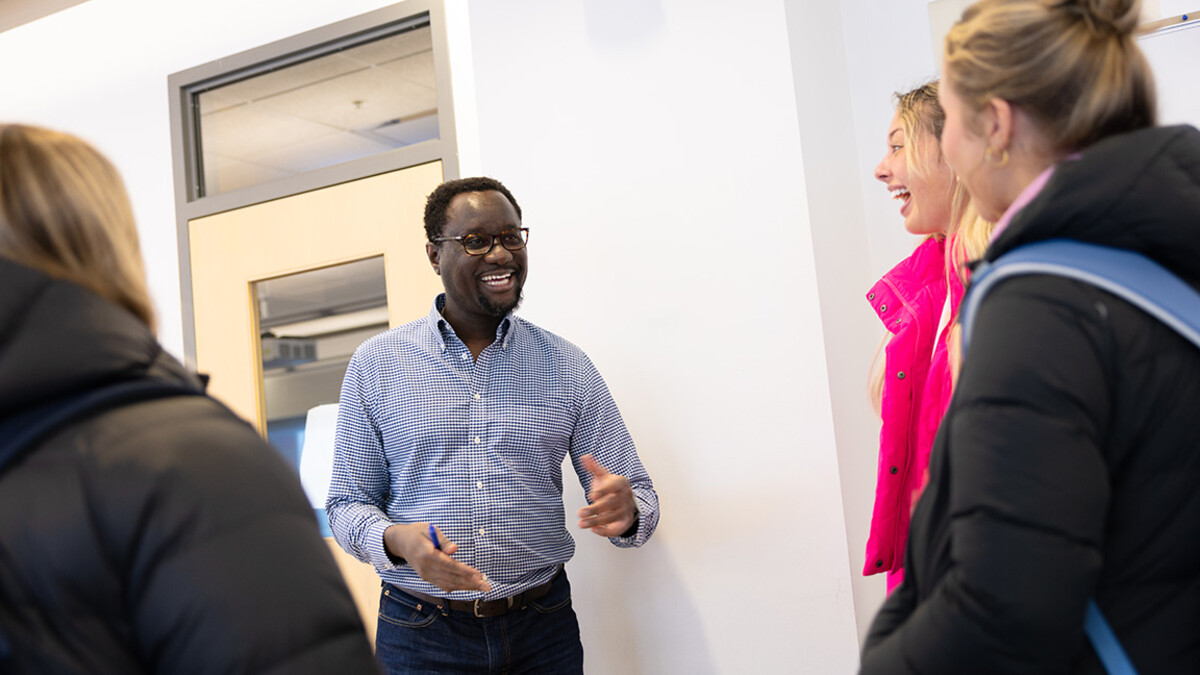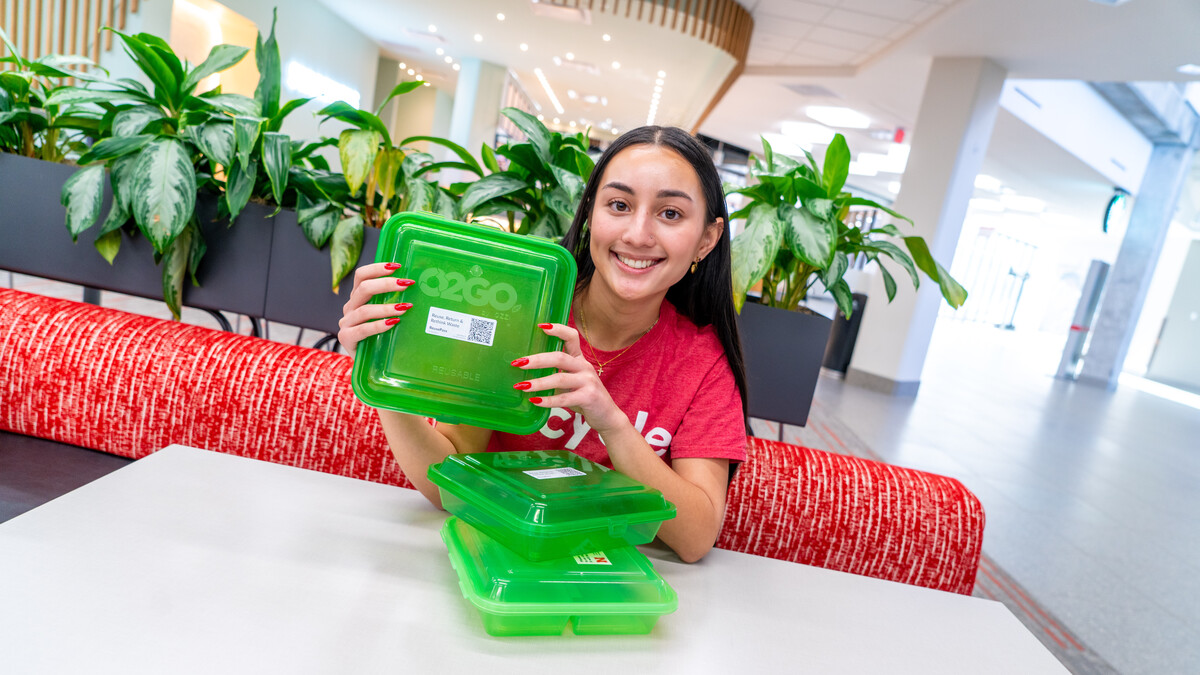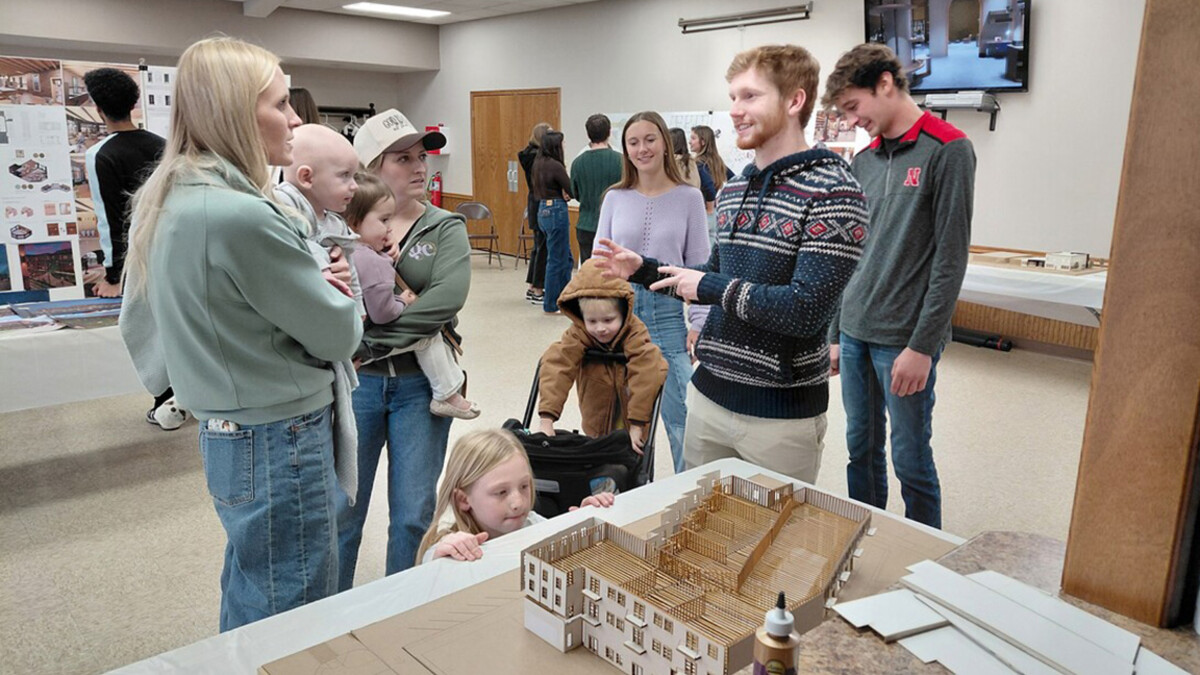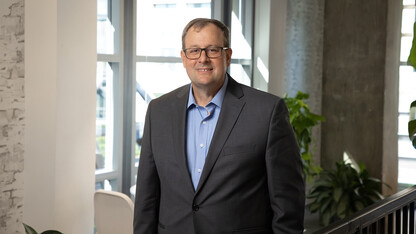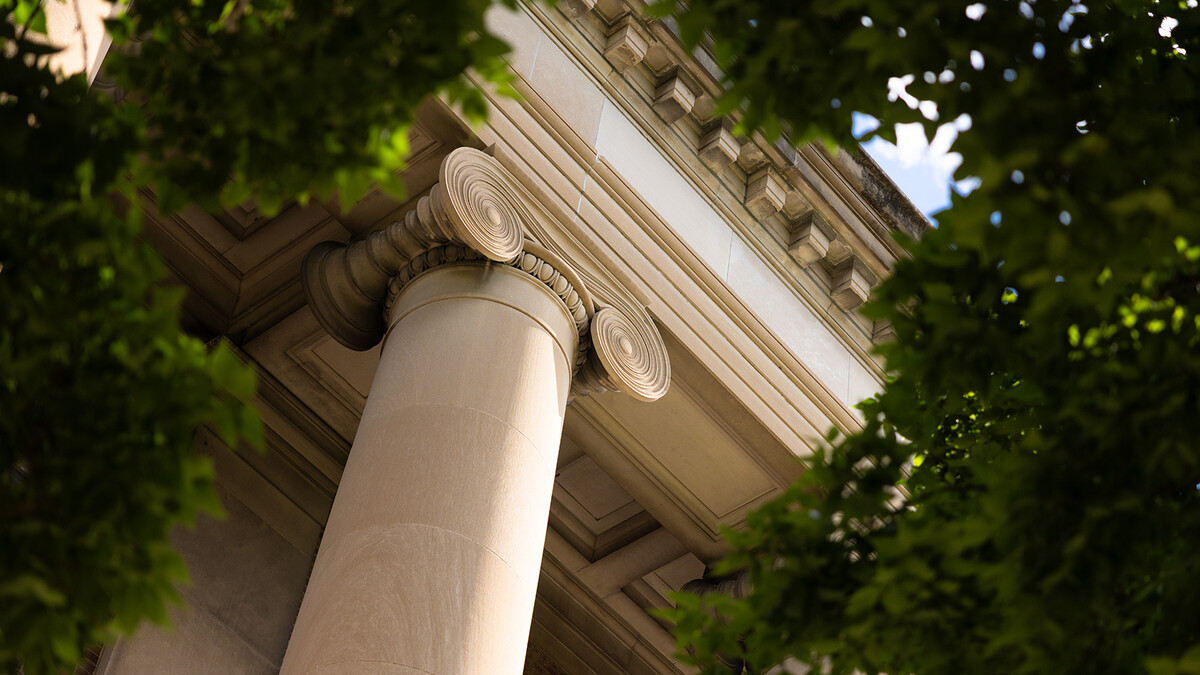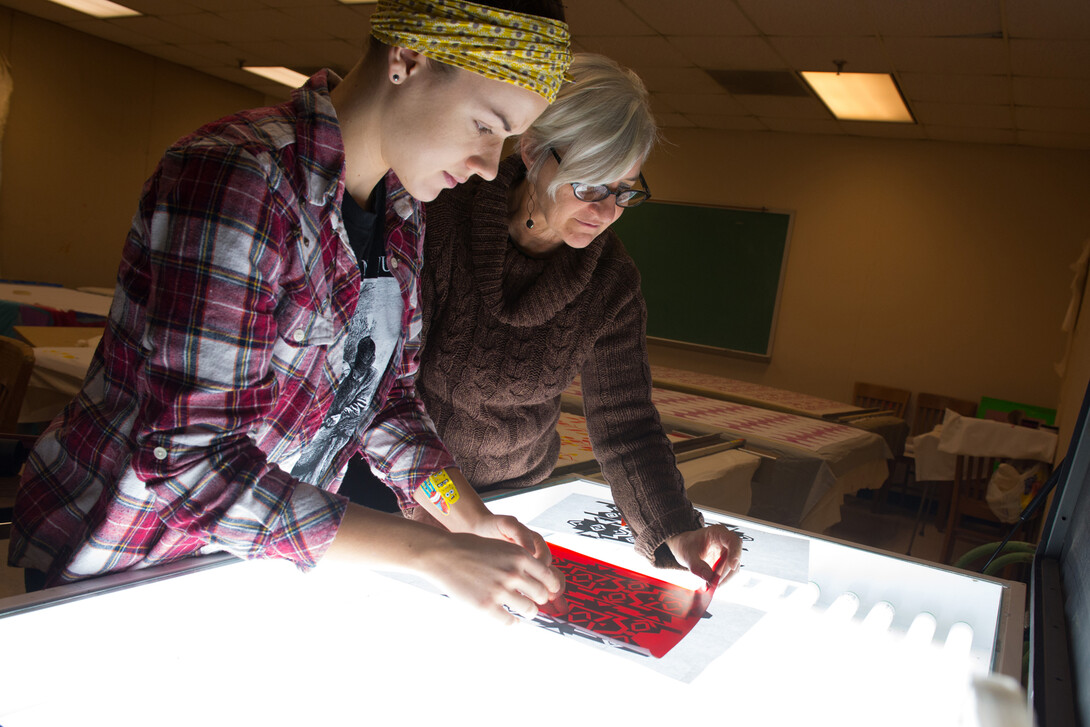
Wendy Weiss, professor and director of the Robert Hillestad Textiles Gallery, has been awarded a Fulbright-Nehru Senior Scholar grant to continue her ikat weaving research in Gujarat, India.
Wendy Weiss has received a Fulbright-Nehru Senior Scholar grant to expand her ikat weaving research in Gujarat, India. She will work on the project during the 2014-2015 academic year.
The award was announced by the United States Department of State and the J. William Fulbright Foreign Scholarship Board.
Weiss is a professor of textiles, merchandising and fashion design and director of UNL’s Robert Hillestad Textiles Gallery. She previously received a Fulbright to study the ikat weaving process in 2009. Research from that award will be published in the May issue of the Journal of Textile Design Research and Practice.
Weiss studied ikat, a specialized and traditional dyeing technique, from weavers near Vadodara, Gujarat, India from January to May 2009. Ikat is a textiles technique where threads are bound tightly prior to dyeing. The process is similar to tie-dye, however through preplanned binding, ikat weavers create patterns in the textile.
“Ikat is a technique that requires a great deal of skill in preparing the yarn so you end with a repeating pattern across the fabric,” Weiss said. “Conceptually, it’s easy to understand. But, procedurally, it’s a very difficult process to master.”
Weiss was drawn to the vibrant colors produced through the ikat process. She researched the weaving method process, tested the techniques and published the results in a book based on Indonesian styles.
“I really wanted to explore ikat more, get a better understanding of the process. The color variations the process produces were something I wanted to incorporate into my work,” Weiss said.
The 2009 Fulbright allowed Weiss to gain hands-on training as she worked as a Fulbright Nehru Research Scholar in the textiles and clothing department at the Maharaja Savajirao University of Baroda. Her primary goal was to document ikat techniques from an artist’s perspective. The project included working with first-year master’s students to develop ikat designs.
Weiss interviewed double ikat weavers in Baroda and the village of Somasar. And, with the help of Anjali Karolia, a teacher from MSU who was a visiting Fulbright scholar at UNL, Weiss established connections to key individuals in a crafts cluster initiative organized in five India states.
Through those contacts, Weiss visited the rural area of Surendranagar, where several villages participate in the crafts initiative. Weiss said crafts created range from saris and dupattas to cushion covers, stoles and scarves.
In Surendranager City, Weiss met master weaver Vaghelu Vitthalbhai. She worked with him to document the ikat process in April 2009.
“He spoke only a little bit of English and I didn’t speak Gujarati,” said Weiss. “I didn’t have a translator for a great part of the time. I observed and took notes about the process.
“It worked out well because our common language was weaving.”
The relationship with Vitthalbhai and other weavers around the area grew into a consultation and potential market for ikat designs developed by students at Maharaja Savajirao University.
“We took the students and their designs on a field trip to get feedback from Vitthalbhai and other weavers,” said Weiss. “The weavers and staff favorably received the designs, saying they would produce them on a trial basis for potential development into new products.”
Weiss has continued to foster the relationship between the students and weavers.
Her ikat designs were featured in an exhibition that supplemented the 2010 Textile Society of America biennial symposium.
For more information on Weiss’ 2009 Fulbright experience studying ikat, go online to http://ikatweaving.net.
Weiss is one of approximately 1,100 faculty and professionals from the United States who will travel abroad through the Fulbright U.S. Scholar Program in 2014-2015. The program is administered by the Council for International Exchange of Scholars, a division of the Institute of International Education.
For more information about the Fulbright Program or the U.S. Department of State’s Bureau of Educational and Cultural Affairs, go to http://eca.state.gov/fulbright.
